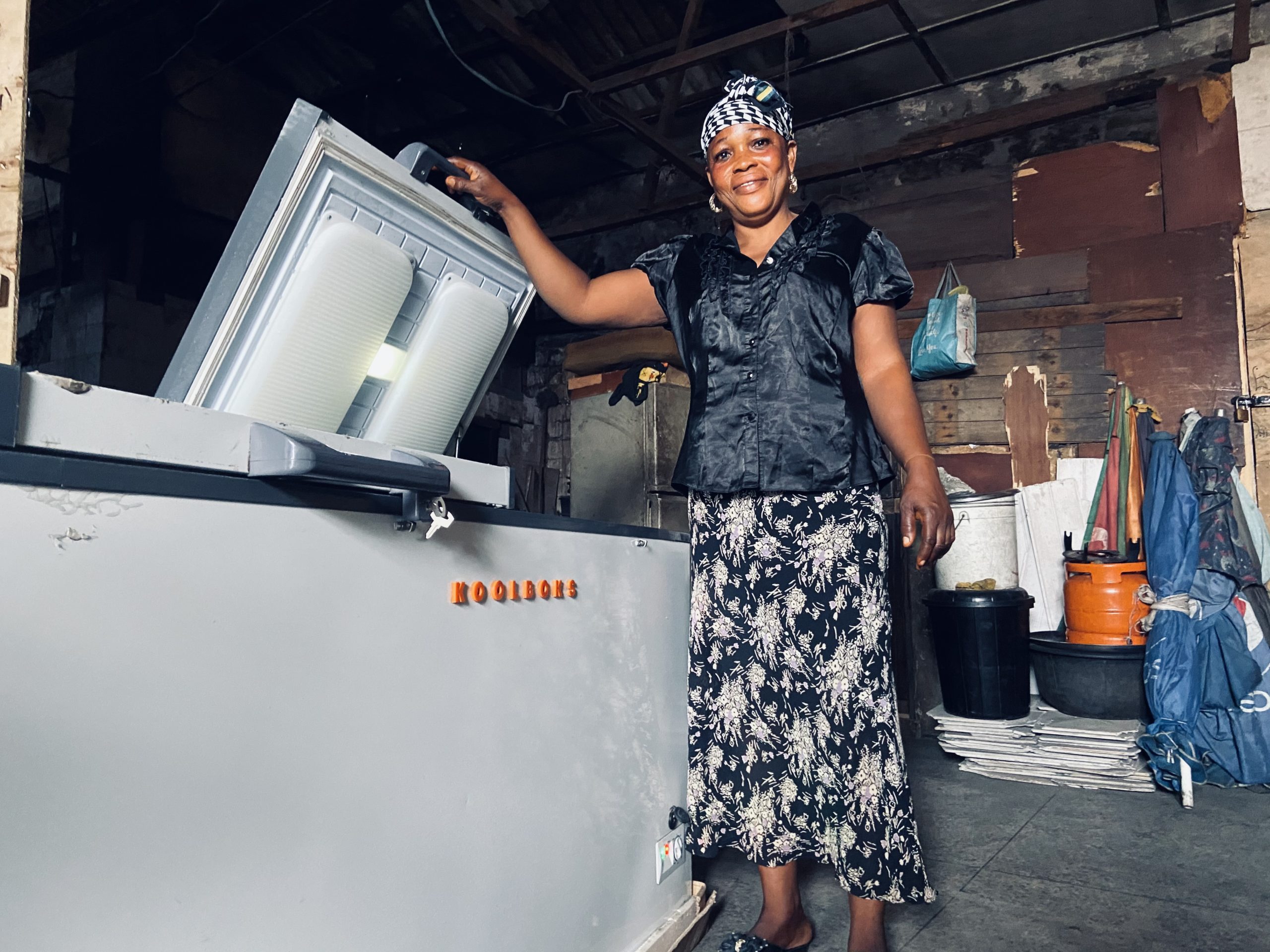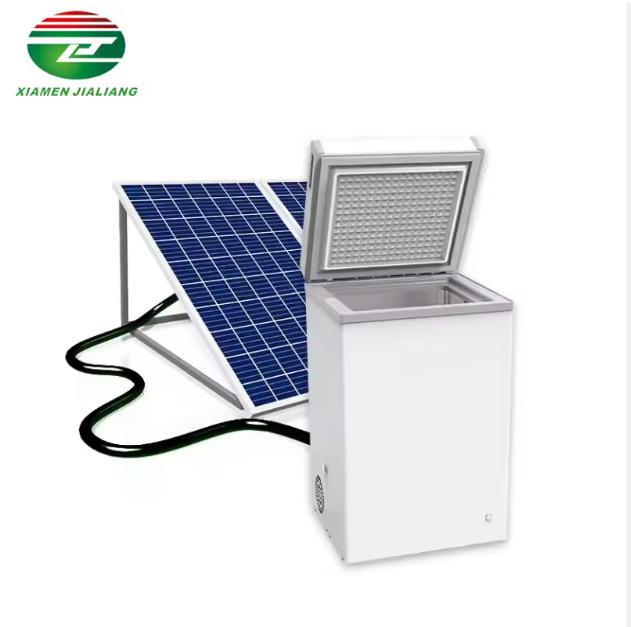A solar refrigerator helps preserve food while being energy efficient.
A solar refrigerator helps preserve food while being energy efficient.
Blog Article
The Value of Solar Refrigerator in Modern Renewable Power Practices
The integration of solar refrigerators within modern eco-friendly power techniques represents a considerable development in sustainable innovation. By using solar energy for air conditioning, these systems not only reduce dependancy on typical energy sources however additionally address vital issues such as food conservation and accessibility to vital medicines in remote areas.
Benefits of Solar Refrigerators
Solar fridges regularly offer numerous benefits that make them an attractive selection for both household and business use. One of the main benefits is their capacity to harness sustainable power, significantly lowering dependence on conventional power resources. This not only reduces energy expenses however also adds to environmental sustainability by decreasing greenhouse gas emissions.
One more trick advantage is their performance in remote locations where conventional power supply may be unstable or nonexistent. Solar refrigerators make it possible for people and companies to preserve food safety and security and maintain perishable products, thus improving food security in underserved areas.
Additionally, solar refrigerators commonly need reduced maintenance compared to standard designs, as they have less relocating components. solar refrigerator. This leads to increased toughness and durability, supplying a cost-effective option over time. They also run calmly, adding to an extra enjoyable living or workplace
Moreover, the adoption of solar refrigeration modern technology straightens with global initiatives to promote clean power options and battle environment modification. By buying solar refrigerators, consumers not just profit directly however likewise add to wider sustainability efforts, making them a forward-thinking choice for the contemporary age.
How Solar Refrigerators Work

Solar refrigerators normally consist of a battery storage system to make sure functionality during periods of reduced sunlight or nighttime. When sunshine is plentiful, the PV panels generate electrical power to operate the compressor and bill the batteries. The kept power can then be utilized when solar power wants, preserving a consistent temperature inside the refrigerator.
Several solar refrigerators also incorporate energy-efficient components, such as LED lighting and high-performance insulation, to lessen power usage. The performance of these systems is even more enhanced by passive air conditioning techniques, which can consist of reflective surfaces and thermal mass products that aid preserve great temperatures.
Applications in Off-Grid Locations

In remote regions, where traditional refrigeration options are usually impractical or inaccessible, solar fridges use a sustainable solution. They make it possible for neighborhood farmers to store disposable produce, hence decreasing waste and improving food protection. Furthermore, in healthcare settings, solar refrigerators ensure that injections and necessary drugs remain sensible, contributing to much better health results for populations that might or else encounter considerable obstacles to health care access.
In addition, the implementation of solar fridges in off-grid areas can boost local economic situations by helping with the facility of little businesses, such as food handling and distribution. As these neighborhoods get to trustworthy refrigeration, they can take part in value-added activities, inevitably resulting in boosted livelihoods. The fostering of solar refrigeration modern technology represents not just a practical reaction to power challenges however additionally a strategic investment in the strength and sustainability of off-grid communities.
Environmental Effect and Sustainability
The assimilation of solar refrigerators into energy systems dramatically enhances ecological sustainability by reducing reliance on nonrenewable fuel sources and decreasing greenhouse gas emissions. By utilizing solar power, these fridges run without the need for conventional electrical energy, which is commonly generated from nonrenewable fuel source resources. This transition not only reduces carbon footprint however likewise advertises cleaner air top quality, as less toxins are launched right into the ambience.
Moreover, solar refrigerators are designed to be energy-efficient, usually utilizing advanced insulation technologies and energy management systems. These features further decrease power intake, bring about an extra lasting cycle of usage. In country more tips here and off-grid areas, solar refrigerators offer necessary air conditioning without the environmental expenses connected with diesel generators or other fossil fuel-based systems.
Additionally, the fostering of solar refrigeration adds to the reduction of food putridity, thus decreasing food waste and its associated ecological effects. As food manufacturing and waste are significant factors to greenhouse gas discharges, enhancing food preservation via lasting cooling methods plays an essential function in overall ecological stewardship. Consequently, solar refrigerators not only stand for a technical advancement but likewise align with more comprehensive objectives of sustainability and ecological duty.

Future of Solar Refrigeration
Visualizing a future where solar refrigeration comes to be the norm exposes its potential to transform the means we come close to cooling and food preservation. As see innovations in photovoltaic technology remain to advance, solar refrigerators are expected to end up being a lot more reliable, economical, and easily accessible. This shift will not just lower dependence on fossil gas but also substantially lower greenhouse gas exhausts related to traditional refrigeration methods.
Innovative styles, such as solar-powered absorption and thermoelectric refrigerators, are likely to acquire traction, specifically in off-grid and country locations. The integration of smart technologies, including IoT capabilities, will certainly boost customer experience and maximize power intake. In addition, the unification of power storage space options will certainly make it possible for solar fridges to give regular air conditioning even during periods of reduced sunshine.
The farming sector stands to profit profoundly, as solar refrigeration can prolong the service life of perishable goods, decreasing food waste and improving food security. As federal governments carry out helpful policies and motivations, combined with enhanced customer understanding, solar refrigeration could come to be a typical method across numerous sectors. Eventually, the future of solar refrigeration promises a lasting and effective approach to air conditioning, fundamentally changing food preservation and power usage worldwide.
Conclusion
In summary, solar refrigerators represent a pivotal innovation in sustainable power practices, offering many benefits including reduced reliance on nonrenewable fuel sources and improved food conservation in off-grid areas. Their procedure click for more harnesses solar energy successfully, thus advertising sustainability and reducing ecological influence. As modern technology continues to develop, the capacity for solar refrigeration to add to local economic situations and broader sustainability objectives will likely increase, reinforcing its value in the change towards a cleaner, a lot more sustainable energy future.
Report this page